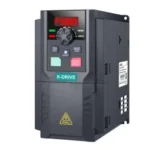Starting a family entertainment business can be one of the most rewarding entrepreneurial journeys both emotionally and financially. With the increasing demand for family-friendly destinations that combine fun, safety, and creativity, this niche offers immense opportunities for those looking to make a difference while turning a profit. Whether you dream of building an indoor play center, an amusement park, or an adventure facility, here’s a comprehensive guide to help you launch a successful family entertainment business.
1. Understand the Market & Choose Your Niche
Before investing time and capital, research your local market. Are families in your area more interested in indoor play zones, mini golf, arcades, or outdoor adventure parks? You’ll need to evaluate demographics, average income levels, school density, and competition.
Popular niches include:
- Indoor soft play centers
- Trampoline parks
- Mini amusement parks
- Interactive museums
- Outdoor adventure zones
Think about what will set your offering apart. Maybe it’s a tech-integrated play experience or a wellness-focused center that includes activities for parents and kids alike.
2. Develop a Unique Concept
Your concept is your brand’s heartbeat. It should resonate with both kids and adults, providing value, safety, and fun. For instance, you could develop themed entertainment zones based on popular characters, stories, or imaginative play. Involving elements like trampolines for backyards can inspire parents to bring the fun home, too making your brand memorable beyond your facility.
Brainstorm ways to extend your concept into events like birthday parties, school trips, or community festivals. Diversification helps you stay afloat during off-seasons.
3. Create a Business Plan
Your business plan is the blueprint that guides your journey. It should clearly outline:
- Your vision and mission
- Startup and operating costs
- Revenue streams (entry tickets, events, merchandise, food & beverage)
- Target audience and marketing strategy
- Facility layout and safety plan
- Staffing requirements
Use this document to pitch to investors, apply for loans, or secure property leases. The more detailed, the better.
4. Secure the Right Location
Location is critical in the family entertainment industry. Your facility should be easily accessible, offer sufficient parking, and be situated near schools, residential areas, or shopping centers.
If you’re planning an indoor setup, ensure the building meets all safety codes and has space for installations like foam pits, climbing walls, or kids trampoline zones. For outdoor spaces, consider weather protection, landscaping, and maintenance requirements.
5. Licensing, Insurance, and Legal Compliance
Entertainment businesses have stringent safety and liability requirements. You’ll need to:
- Register your business and get local government approvals
- Obtain liability insurance, especially if rides or physical activities are involved
- Comply with health and safety codes (fire exits, first-aid kits, trained staff)
- Ensure child protection policies are in place, especially for staffed play areas
You may also need background checks for all employees, especially those interacting with children.
6. Invest in High-Quality Equipment and Design
Safety and fun go hand in hand. Purchase high-quality, age-appropriate equipment that aligns with your concept. From arcade machines to water slides or immersive digital experiences, your infrastructure will set the tone for customer satisfaction.
Make sure your interiors are vibrant, clean, and engaging. Even your waiting areas should be designed with comfort and aesthetics in mind. After all, parents are part of your audience too!
Surprisingly, small touches like themed uniforms or decor inspired by diamond rings (for a “princess adventure” room, for instance) can enhance the storytelling experience and build lasting brand impressions.
7. Hire the Right Team
From entertainers and safety supervisors to customer service reps and maintenance staff, your team can make or break your reputation. Prioritize hiring energetic, friendly individuals who genuinely enjoy working with families.
Provide training on customer service, safety protocols, and emergency response. A cheerful staff member who helps calm a crying child or goes the extra mile for a parent creates the kind of word-of-mouth marketing money can’t buy.
8. Market Your Business Locally and Online
Marketing should begin months before your grand opening. Build buzz on social media, partner with local schools, run giveaways, and host sneak-peek tours for influential community members.
Key marketing ideas include:
- Google My Business listing
- Local SEO for terms like “fun places for kids” or “indoor play center near me”
- Facebook and Instagram ads
- Collaborations with parenting influencers and bloggers
Create a brand website with booking functionality, virtual tours, and testimonials. Email newsletters, loyalty programs, and early bird discounts will help with retention.
9. Offer Value-Added Services
To increase revenue and customer loyalty, consider offering:
- Birthday packages
- After-school programs
- Summer camps
- Retail (toys, snacks, branded merchandise)
- A family-friendly café or snack bar
These add-ons can make your business more than just a one-time destination—it becomes part of your customers’ weekly routine.
10. Collect Feedback and Keep Innovating
After launch, listen to your customers. Conduct surveys, read reviews, and observe how families interact with your facility. Use this feedback to tweak your offerings, improve staff training, or plan your next attraction.
The family entertainment business is dynamic. Trends shift—what’s popular today might change tomorrow. Be flexible, creative, and proactive in evolving your concept.
Final Thoughts
Starting a family entertainment business blends entrepreneurship with joy. You’re not just building a business—you’re creating a space where families make memories, celebrate milestones, and spend quality time together. With the right vision, planning, and community engagement, your facility can become the go-to family destination in town.


